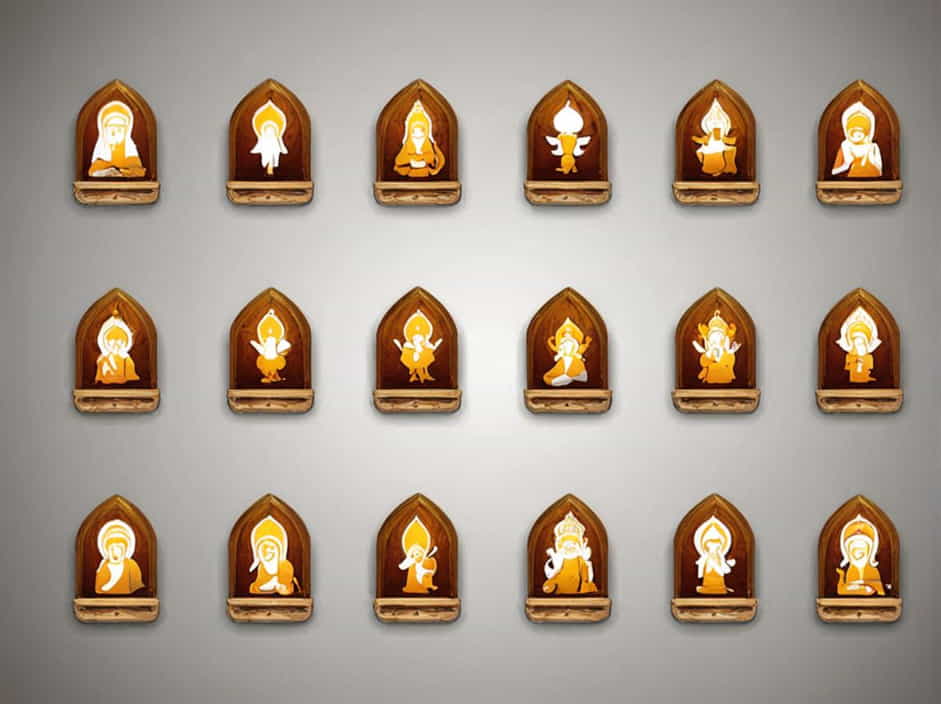Religion has been a fundamental part of human civilization for thousands of years. From ancient rituals to sacred texts, spirituality has shaped cultures, traditions, and societies. But what is the oldest religion in the world? This question has fascinated historians, archaeologists, and religious scholars for centuries.
This topic explores:
- Defining the “oldest religion”
- Hinduism and its ancient roots
- Other prehistoric religious practices
- The significance of ancient spirituality today
What Defines the “Oldest Religion”?
Before identifying the oldest religion, it is essential to define what makes a religion “old.” There are several factors to consider:
- Sacred Texts – Some religions have written scriptures that date back thousands of years.
- Ritual Practices – Many ancient faiths were passed down orally through rituals and traditions.
- Archaeological Evidence – Temples, artifacts, and symbols provide clues about prehistoric beliefs.
Hinduism: The World’s Oldest Living Religion
Ancient Origins of Hinduism
Hinduism is widely regarded as the oldest organized religion still practiced today. Its origins can be traced back over 4,000 years to the Indus Valley Civilization (c. 3300-1300 BCE). Unlike many religions, Hinduism has no single founder. Instead, it evolved over time through a collection of philosophies, deities, and sacred texts.
The Vedas: The Oldest Religious Texts
One of the key reasons Hinduism is considered ancient is its sacred texts, the Vedas. The Vedas, written in Sanskrit, are among the oldest religious scriptures in existence. They include:
- Rigveda – Hymns praising various gods.
- Yajurveda – Rituals and sacrifices.
- Samaveda – Chants and melodies for worship.
- Atharvaveda – Magical spells and prayers.
Hindu Beliefs and Practices
Hinduism is a polytheistic religion with millions of deities, though many Hindus believe in a single supreme reality called Brahman. Some of the most important concepts in Hinduism include:
- Karma – The law of cause and effect.
- Dharma – One’s duty or moral path in life.
- Reincarnation – The cycle of birth, death, and rebirth (samsara).
- Moksha – Liberation from the cycle of rebirth.
Hinduism’s Connection to Prehistoric Beliefs
Many elements of Indus Valley religious practices resemble Hindu traditions. Archaeologists have discovered:
- Seals depicting deities similar to Shiva.
- Sacred bathing rituals that resemble modern Hindu purification rites.
- Yogic postures in ancient carvings, suggesting early meditation practices.
Prehistoric Religious Beliefs: Before Hinduism
While Hinduism is considered the oldest surviving religion, spiritual beliefs existed long before written history. These include:
Animism: The Earliest Form of Spirituality
Before organized religions, early humans practiced animism, the belief that all things-animals, plants, rivers, and even stones-have a spirit. This belief is found in:
- Indigenous cultures worldwide, from Native American tribes to African spiritual traditions.
- Cave paintings and burial sites that suggest rituals honoring nature and the dead.
Shamanism: Connecting with the Spirit World
Shamanism is another ancient spiritual practice where shamans (spiritual leaders) mediate between humans and the spirit world. Evidence of shamanic rituals has been found in:
- Siberian tribes performing trance-based ceremonies.
- Australian Aboriginal “Dreamtime” stories, passed down for over 60,000 years.
Egyptian Religion: The Worship of Gods and the Afterlife
Ancient Egypt had a highly developed religion, with gods like Ra (sun god) and Osiris (god of the afterlife). Egyptian beliefs influenced many later religions, particularly through:
- Mummification and life after death concepts.
- Temples and hieroglyphic prayers.
- The idea of divine kingship, where pharaohs were considered gods.
Zoroastrianism: One of the First Monotheistic Religions
While Hinduism is often considered the oldest polytheistic religion, Zoroastrianism is one of the earliest monotheistic faiths. Founded by Zoroaster (or Zarathustra) around 1500 BCE, it introduced concepts like:
- One supreme God (Ahura Mazda).
- Good vs. Evil as central to human life.
- Sacred fire as a symbol of divine presence.
The Influence of Ancient Religions on Modern Faiths
Many of today’s major religions-including Judaism, Christianity, and Islam-were influenced by ancient spiritual traditions. Some examples include:
- Christianity and Islam drawing from Jewish traditions.
- Hindu and Buddhist concepts of karma and reincarnation.
- The idea of divine judgment and heaven/hell in Zoroastrianism influencing later Abrahamic faiths.
Why Does the Oldest Religion Matter Today?
Preserving Ancient Wisdom
Understanding the oldest religion helps us appreciate:
- How early humans understood life, death, and the cosmos.
- The evolution of religious thought over thousands of years.
- The common spiritual themes found across cultures.
Connecting with Spiritual Roots
Many modern spiritual movements draw inspiration from ancient wisdom, such as:
- Yoga and meditation rooted in Hindu and Buddhist traditions.
- Nature-based spirituality influenced by animism.
- Rituals and sacred symbols still used in religious ceremonies today.
Encouraging Religious Tolerance
Recognizing that all religions share ancient connections fosters:
- Greater respect for diverse beliefs.
- Understanding that spirituality evolves over time.
- A deeper appreciation for humanity’s shared quest for meaning.
The oldest religion in the world is a complex question with many answers. Hinduism remains the oldest organized religion still practiced today, with roots in the Indus Valley Civilization and the Vedic traditions. However, even older spiritual beliefs-such as animism, shamanism, and ancestor worship-existed long before written history.
By studying these ancient traditions, we gain a better understanding of humanity’s deep connection to the divine. Whether through the gods of Hinduism, the spirits of shamanic traditions, or the rituals of ancient Egypt, early religions continue to shape modern spirituality.
As we move forward in time, recognizing our shared spiritual past helps us appreciate the diverse ways people seek meaning, purpose, and connection with the universe.
